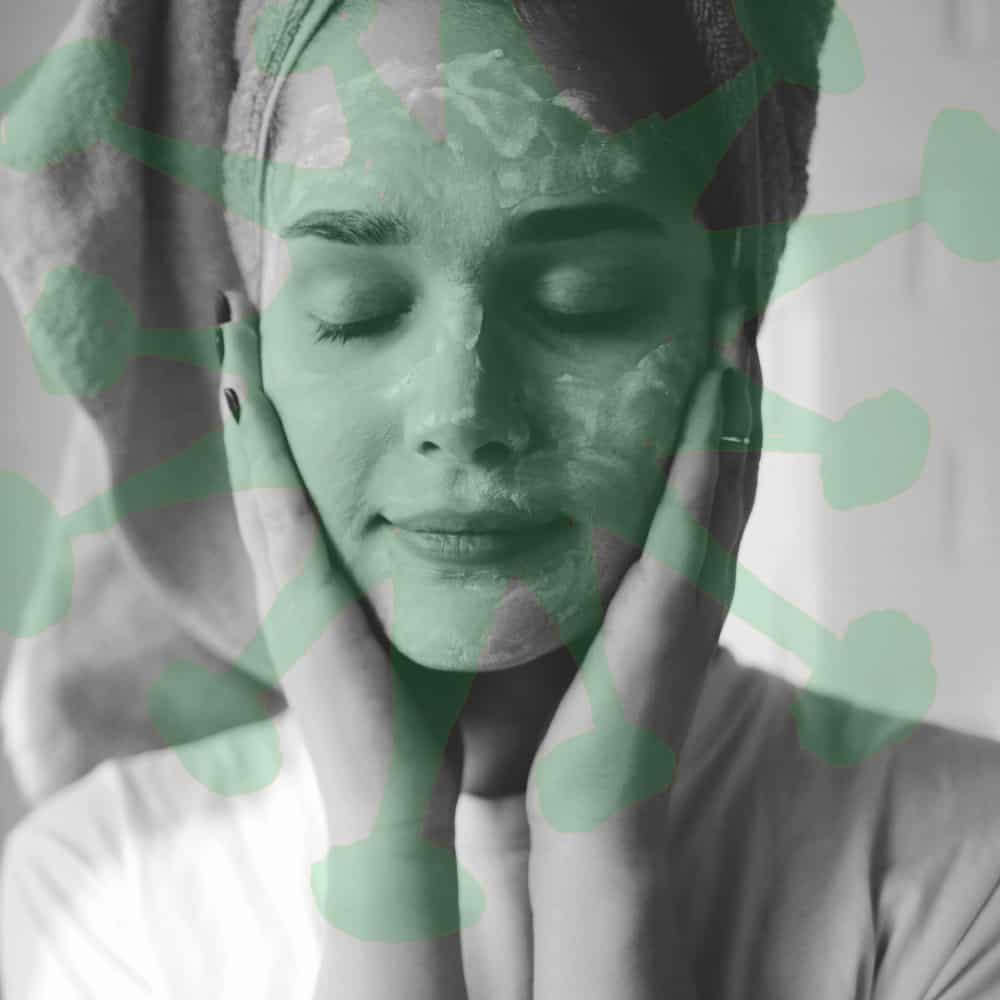Considering its importance to skin health, the microbiome played a very small part in skincare until recently.
Skincare products have long accepted the microbiome and knew not to aggravate bacteria that could cause skin problems. Yet, actual industry development was minimal.
Only a handful of disruptor brands, such as Galinee and Mother Dirt, placed the microbiome at the centre of its promise to consumers. This niche market is no more.
Nowadays, consumers’ growing curiosity about the relationship between their internal, external, and mental health and wellbeing has left them looking to the microbiome for answers, especially when it comes to healthy skin. As a result, beauty products must now balance the needs of the body’s entire ecosystem.
Mintel has been monitoring consumer feelings about ingredients like prebiotics and probiotics for the last few years, observing the awareness of their impact grow. In July 2019, our research found that 59% of US women who use beauty products have heard of probiotics and look for them in  products.
products.
This realization has pushed the skincare category into overdrive, with more and more brands incorporating prebiotic and probiotic ingredients to feed and replenish the skin. 6% of global facial skincare products in 2019 contained probiotics, compared to 4% in the previous year.
Working together in harmony
Now that the microbiome is in the spotlight, everyone wants to be its friend. Mintel’s Global New Product Database (GNPD) collects data on products launched in more than 60 countries around the world. It shows that mentions of ‘microbiome’ among global skincare launches grew by 130% between 2018 and 2019.
These mentions of the microbiome are often in conjunction with ‘dermatological testing’ or ‘suitability for sensitive skin’. This language helps consumers understand how they fit into the health and wellness movement.
Our research found that 59% of US women who use beauty products have heard of probiotics and look for them in products.
However, these links to health will be under scrutiny after years of broken promises. 34% of Japanese consumers don’t believe the claims beauty products make: skincare brands need to enhance their credibility.
Many have taken a scientific approach, like La Roche-Posay’s Lipikar Triple Action balm, which claims its AP+M technology rebalances the microbiome and reduces the frequency of dry skin flare-ups. Dr Jart+ has even gone so far as to create its own streptococcus thermophiles ferment, nicknamed the Jartbiome.
Products from these mainstream brands serve as proof that research into the microbiome has intensified, and that skincare brands are doing their best to protect and nurture the skin of their consumers.
The seal of approval
As consumers continue to understand the impact of the microbiome, skincare brands have the opportunity to become educators and accelerate learning.
However, something consumers would really appreciate is advice from an independent body. 49% of Australian consumers use campaign and accreditation groups’ information to learn about beauty ingredients, according to Mintel’s research.
With no existing microbiome authority in the skincare market, some brands are attempting to create their own standard in an effort to give consumers some confidence. Dove’s ‘microbiome gentle’ stamp began appearing on products in Spring 2019, but has been criticised for giving no evidence to support its claim.
The appeal of probiotic skincare will likely be boosted by accompanying supplements from the same brand, in order to increase its ‘microbiome friendly’ profile.
Enter MyMicrobiome: a microbiome education platform headed by microbiologist Dr Kristin Neumann. Her team have developed a quality standard for microbiome friendly skin care products and cosmetics, testing their effects on the skin and mucosa microbiome. The resulting ‘microbiome friendly’ label will only be awarded if the product passes the following criteria:
- the product is free from contamination;
- bacteria specific to that area of the body will be able to grow unharmed;
- the variety of the microbiome is preserved in the presence of the product;
- skin balance remains undisturbed by the product because of the suppression of protecting bacteria and fostering of harmful bacteria.
A clear future
This form of labelling with will bring some much-needed clarity to microbiome-related skincare. Consumers can rest easy knowing that there is an independent regulator in the market helping brands to make the right decisions for skin health. Brands can use it as a clear way to communicate with increasingly savvy skincare users.
However, with probiotics still firmly linked to digestive health, many wellness-seekers will prefer to ingest their bacteria. The appeal of probiotic skincare will likely be boosted by accompanying supplements from the same brand, in order to increase its ‘microbiome friendly’ profile. The race is on.
Want to know more on the skin microbiome, why not read out latest quarterly review or look at our Instagram channel.
